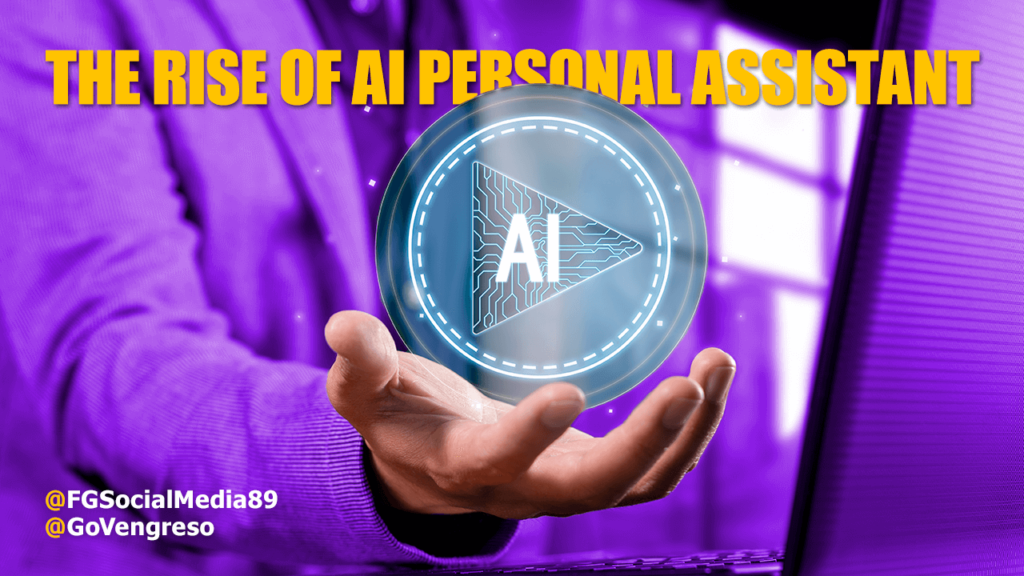In today’s fast-paced world, Americans are turning to personal AI assistants to streamline their lives and boost productivity. From scheduling meetings to managing grocery lists, these intelligent tools are becoming essential for people juggling work, family, and personal goals. The rise of AI assistants reflects a growing desire for efficiency and balance in an increasingly busy society. This article explores why personal AI assistants are gaining popularity, how they’re transforming daily routines, and what the future holds for this technology.

Why Are AI Assistants Becoming So Popular?
Personal AI assistants, like Siri, Alexa, Google Assistant, and newer players like Grok, are no longer just voice-activated gadgets. They’ve evolved into powerful tools that understand context, learn user habits, and offer tailored solutions. According to a 2024 survey by Pew Research, 68% of Americans now use AI assistants at least once a week, up from 45% in 2020. The reasons are clear: convenience, time savings, and accessibility.
For many, the appeal lies in how these assistants simplify complex tasks. Imagine a single command that books a dentist appointment, adds it to your calendar, and sends a reminder a day before. This seamless integration is why professionals, parents, and even students are adopting AI assistants. They’re not just for tech-savvy users anymore—anyone with a smartphone or smart speaker can benefit.
Another factor driving adoption is the improvement in AI technology. Modern assistants use natural language processing to understand casual speech, making interactions feel more human. Whether it’s asking for a recipe while cooking or getting a quick weather update before heading out, these tools fit effortlessly into daily life.
How AI Assistants Boost Daily Productivity
Personal AI assistants are changing the way Americans manage their time. Here are some key ways they’re making a difference:
1. Task Automation
AI assistants excel at handling repetitive tasks. For example, they can set reminders, send emails, or even pay bills with a single voice command. This automation frees up mental space for more important decisions. Sarah Thompson, a marketing manager from Chicago, says, “My AI assistant schedules my meetings and organizes my inbox. It’s like having a personal secretary without the cost.”
2. Time Management
With features like calendar integration and real-time traffic updates, AI assistants help users stay on track. They can suggest the best time for a commute or remind you to leave early for an appointment. A 2024 study by Deloitte found that 73% of professionals using AI assistants reported better work-life balance due to improved time management.

3. Personalized Recommendations
AI assistants learn from user behavior to offer customized suggestions. Need a quick workout plan? Your assistant can recommend a 15-minute routine based on your fitness level. Looking for dinner ideas? It can suggest recipes based on what’s in your fridge. This personalization makes daily tasks feel less overwhelming.
4. Multitasking Made Easy
For busy parents or entrepreneurs, AI assistants are a game-changer. They can answer questions, play music, or even read audiobooks while you focus on other tasks. “I use my assistant to keep my kids entertained with stories while I cook dinner,” says Maria Lopez, a mother of two from Texas. “It’s a lifesaver.”
Real-Life Impact: Stories from Users
The growing reliance on AI assistants is evident in stories from everyday Americans. Take John Carter, a freelance graphic designer from Seattle. He uses his AI assistant to manage client communications and track project deadlines. “Before, I was drowning in emails and missed deadlines. Now, my assistant organizes everything, and I can focus on creating,” he says.
Similarly, college student Emily Nguyen from Florida credits her AI assistant for helping her stay organized. “Between classes, part-time work, and studying, I was stressed. My assistant reminds me of assignments and even finds study resources. It’s like having a tutor in my pocket,” she says.
These stories highlight how AI assistants are more than just tools—they’re partners in navigating life’s challenges. By taking on small but time-consuming tasks, they allow users to focus on what matters most.
Challenges and Concerns
Despite their benefits, personal AI assistants aren’t without drawbacks. Privacy is a major concern. Since these tools often listen for voice commands, some users worry about data security. A 2023 report by Consumer Reports found that 62% of Americans are hesitant to use AI assistants due to fears of data misuse. Companies like Amazon and Google have faced scrutiny over how they handle user data, prompting calls for stricter regulations.
Another challenge is over-reliance. Some experts warn that depending too heavily on AI could reduce critical thinking or problem-solving skills. “It’s great to have help, but we need to stay engaged in our own lives,” says Dr. Laura Bennett, a technology researcher at Stanford University.
Accessibility is also an issue. While AI assistants are widely available, not everyone can afford smart devices or has the tech know-how to use them effectively. This digital divide could widen inequalities if not addressed.

The Future of AI Assistants in America
The future of personal AI assistants looks bright, with innovations on the horizon. Experts predict that by 2030, AI assistants will be even more intuitive, capable of handling complex tasks like financial planning or medical appointment coordination. Integration with wearable devices, such as smartwatches, will make them even more accessible.
There’s also a push for ethical AI development. Companies are investing in transparent data practices to build user trust. For example, xAI, the creator of Grok, emphasizes user control over data, allowing people to opt out of certain features for added privacy.
As AI technology advances, its role in education, healthcare, and small businesses is expected to grow. Imagine an AI assistant that helps a small business owner track inventory or a student prepare for exams with personalized study plans. These possibilities are already in development, signaling a new era of productivity.
Why This Matters for Americans
The embrace of personal AI assistants reflects a broader shift in how Americans approach work and life. In a culture that values efficiency, these tools offer a way to reclaim time and reduce stress. They’re not just about getting more done—they’re about creating space for creativity, family, and personal growth.
For those hesitant to try AI assistants, the learning curve is minimal. Most devices come with simple setup guides, and many offer free trials or basic features at no cost. Starting small—using an assistant for reminders or weather updates—can show just how helpful they can be.
As Americans continue to adopt personal AI assistants, one thing is clear: these tools are here to stay. They’re not replacing human effort but enhancing it, helping people live smarter, not harder. Whether you’re a busy professional, a parent, or a student, an AI assistant might just be the productivity boost you need.
Must know :- Celebrities Who Secretly Got Married in 2025 Without Media Coverage






